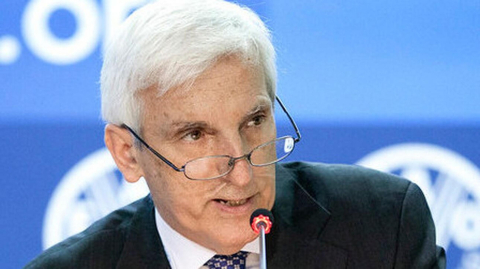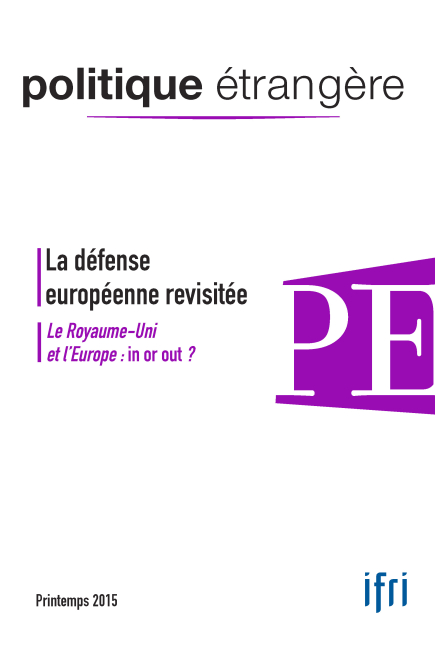3299 publications
Oil and Gas in Eastern Africa: Current Developments and Future Perspectives
The position of oil companies toward East Africa has changed considerably since 2006 when the first reserves in Uganda came to light. However, for many investors interested in the region, it remains difficult to get a clear picture of the scale of developments of this sector.
European Defense Revisited / The United Kingdom and the EU: in or out?
Finally Something New in European Defense
The European defense debate is stepping away from the classical opposition between zealots of “Europe of Defense” and supporters of the North Atlantic Treaty Organization (NATO).
Could Differentiated Integration Unblock the CSDP?
Differentiated integration, which brings some member states together on common means and strategies, appears to be the only route possible to circumvent obstructions to a Common Security and Defense Policy (CSDP) for the 28 member states.
“Minilateralism”: A New Form of Defense Cooperation
Multilateralism has played a significant role in international cooperation.
Sharing Military Capabilities: Dead-End or Future of Defense?
The framework nations concept, elaborated in Germany, was endorsed at the North Atlantic Treaty Organization (NATO) Summit in Wales in 2014. It attempts to organize defense cooperation between a limited number of countries which share a certain cultural proximity.
Europe’s English Patient
Relations between London and the European construct are founded on a misunderstanding: for mainland Europeans, it represents a global political project, whereas for the British, the European Union is just one international institution among others.
Would Europe, Freed from the Perfidious Albion, Lose its Way?
The United Kingdom’s relationship with the European project could be nothing but complex given its long historical legacy and the implications of political, social and value systems that are often divergent.











